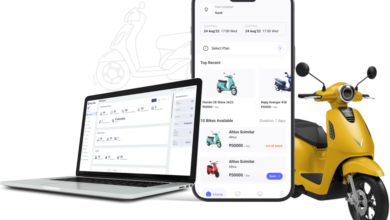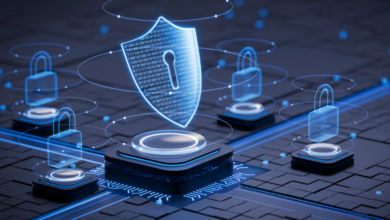Ensuring Safe and Efficient Online Connections

Understanding Modern Cyber Threats
As internet usage grows, the risks associated with online activities have become more pronounced. Cyber threats such as hacking, identity theft, and phishing attacks are increasingly targeting personal and corporate users. The widespread adoption of remote work, online banking, and digital entertainment further exposes users to vulnerabilities.
Public Wi-Fi networks, despite their convenience, often lack sufficient security measures. Accessing sensitive data over these networks can put users at risk of unauthorized data interception. Protecting personal information while maintaining efficient connectivity has therefore become a necessity.
The Role of VPNs in Online Security
A Virtual Private Network (VPN) is an essential tool for safeguarding digital interactions. By encrypting internet traffic and masking IP addresses, VPNs prevent unauthorized access to data. This encryption ensures that intercepted information is unreadable to malicious actors, providing a secure online environment.
VPNs also offer anonymity, preventing websites, advertisers, and even certain authorities from tracking online activity. Users gain access to content that may be restricted in their region while enjoying a secure connection. Modern VPN services combine security, speed, and ease of use, making them accessible for both individuals and organizations.
Advantages of Using a fast vpn
While security is critical, maintaining speed is equally important. A fast vpn ensures encrypted connections without reducing internet performance. This is particularly valuable for bandwidth-intensive activities like streaming, online gaming, and video conferencing.
High-speed VPNs minimize latency and buffering, allowing smooth digital experiences. By combining privacy and performance, a fast vpn becomes a practical solution for those who need both protection and efficiency. Users can conduct their online activities without interruption while remaining secure.
Key Features to Evaluate
When choosing a VPN, several features should be considered. Strong encryption protocols, a wide server network, stable speeds, and cross-platform compatibility are essential. Customer support and privacy policies are also critical factors.
For businesses, VPNs enable secure remote access to sensitive files and internal networks. For individuals, a fast vpn protects personal information, ensures anonymity, and allows unrestricted internet access. Selecting the right service ensures that security does not compromise performance.
See also: Peer to Peer Lending App Development: Transforming the FinTech Landscape
Common Misconceptions About VPNs
Some users believe that VPNs inherently slow down internet connections. In reality, a fast vpn can maintain or even improve browsing performance if optimized correctly. High-quality services provide both speed and security without compromise.
Another misconception is that VPNs are only necessary for business purposes. Everyday activities such as shopping online, social networking, and personal communications benefit significantly from VPN protection. Awareness and proper usage of VPNs allow individuals to safeguard their digital presence effectively.
Combining VPNs with Other Security Practices
While VPNs provide robust protection, combining them with additional security measures ensures maximum safety. Strong passwords, two-factor authentication, regular software updates, and careful online behavior are essential practices.
A fast vpn enhances these measures by encrypting data, masking IP addresses, and allowing secure access to content. Together, these practices create a multi-layered defense against potential cyber threats, ensuring safer internet experiences.
Practical Applications of VPNs
VPNs are widely used for personal and professional purposes. They secure data on public networks, provide anonymity, and enable access to geo-restricted content. Businesses rely on VPNs for secure communications, remote work, and protection of sensitive resources.
A fast vpn improves these applications by maintaining speed and efficiency. Users can stream videos, participate in video calls, and access digital content without interruption, demonstrating the practical benefits of combining security and performance.
Adapting to Emerging Cybersecurity Challenges
Cyber threats continue to evolve, exploiting new vulnerabilities in technology. Users must proactively implement solutions to protect sensitive information.
A fast vpn plays a critical role in this process. When combined with safe online practices, it creates a strong barrier against unauthorized access. Users can confidently perform online activities knowing that their communications and personal data remain protected.
Conclusion
The modern digital landscape demands both security and efficiency. VPNs, especially a fast vpn, provide encryption, anonymity, and unrestricted access to online content. They are essential tools for individuals and organizations aiming to protect sensitive information while maintaining high-speed connectivity.
By integrating a fast vpn with strong passwords, careful online behavior, and regular updates, users create a comprehensive security system. This combination ensures safe, fast, and reliable online experiences, safeguarding personal and professional data from contemporary cyber threats.







